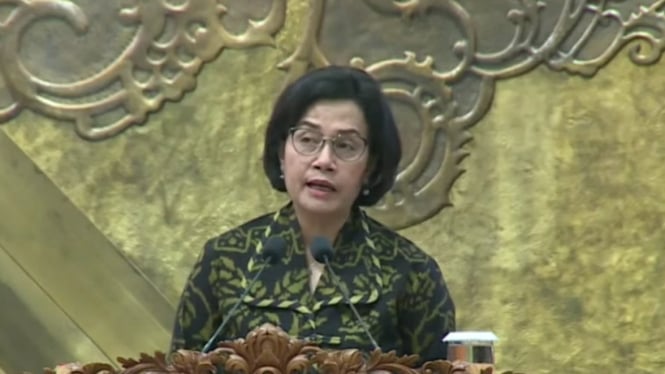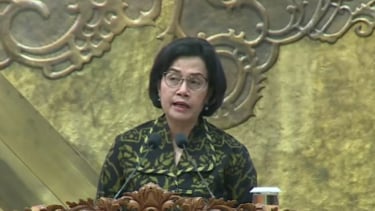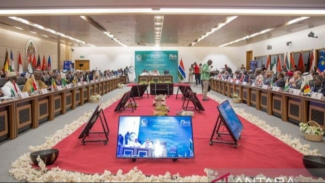- VIVA/Mohammad Yudha Prasetya
India – The Indonesian Finance Minister Sri Mulyani Indrawati discussed tax reform with Finance minister of Australia, James Edward Chalmers during the sidelines of the 3rd G20 Finance Ministers and Central Bank Governors (3rd G20 FMCBG) meeting in India.
"One of the topics of discussion is taxation, especially related to tax reform," the minister said on her official Instagram account @smindrawati, on Monday.
Apart from taxation, both ministers also discussed other topics relevant to India's Presidency of the G20.
First on climate change financing, they explored the potential for collaboration regarding taxonomy and green financing in the Asian region.
Menteri Keuangan Sri Mulyani Indrawati membuka 4th FMCBG G20 di Washington DC, AS.
- VIVA/Anisa Aulia/tangkapan layar.
Second, they also discussed about infrastructure and its financing by integrating public-private partnership.
"I also take this opportunity to express my appreciation for Jim's support regarding Inodnesian membership in the Financial Action Task Force (FATF)," Minister Indrawati stated.
She attended the FMCBG meeting organized under India’s G20 Presidency in Gandhinagar, Gujarat, India.
As part of the agenda, she shared her views on economic development and increasing cooperation with various stakeholders.
To strengthen bilateral cooperation, the Indonesian minister and Indian Finance Minister Nirmala Sitharaman launched the Economic and Financial Cooperation Dialogue (EFD) in Gandhinagar.
The dialogue will discuss policies ranging from the highest level to the technical level. The discussion will be targeted at meeting the domestic development needs of each country, as well as efforts to maintain high economic growth performance, create jobs, reduce poverty, and increase cooperation, not only within a bilateral framework, but also at the multilateral level.



























